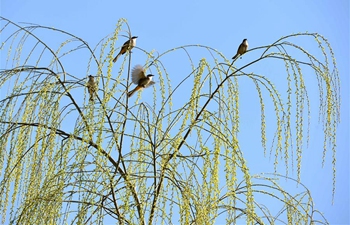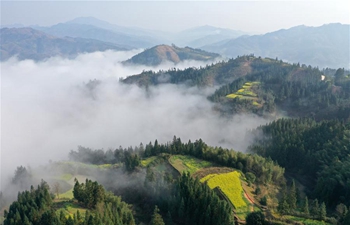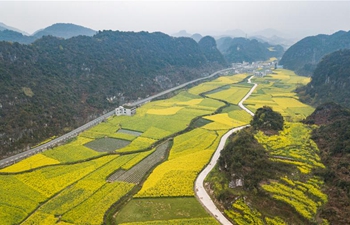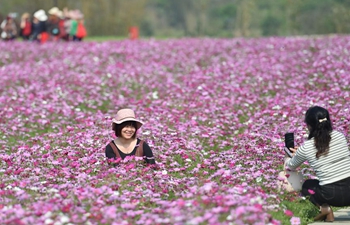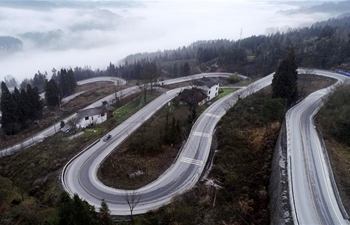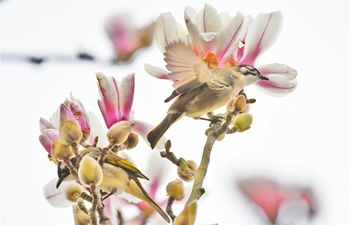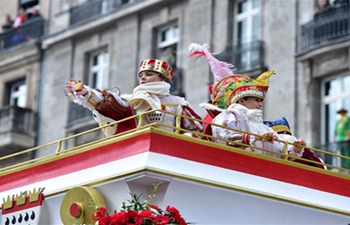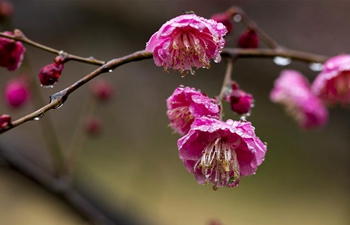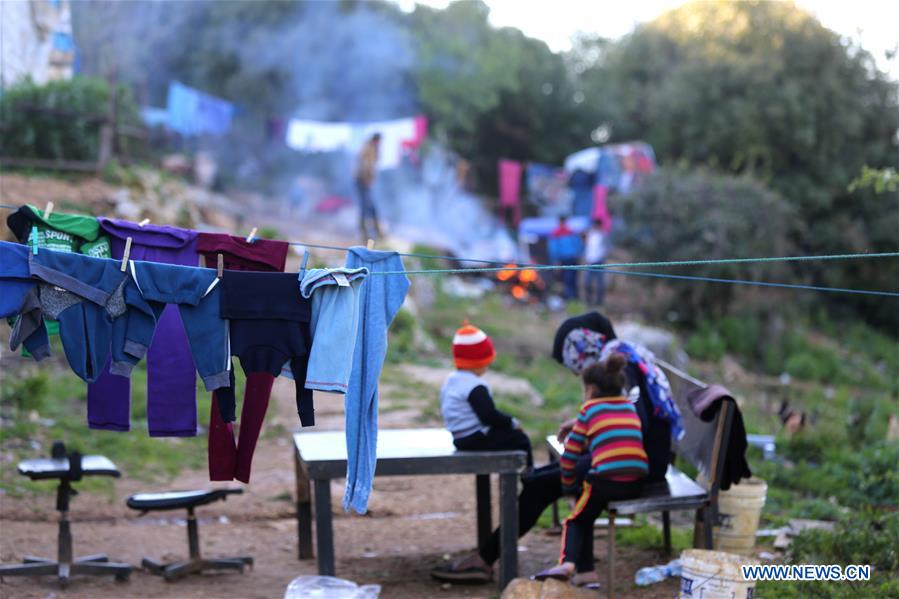 ?
?Kids play at Ketermaya's camp in an olive-tree field on the hillside inside a valley in the mountain area of Ketermaya, southeast of Beirut, Lebanon, March 8, 2019. (Xinhua/Bilal Jawich)
by Dana Halawi
BEIRUT, March 12 (Xinhua) -- Deep inside a valley in the mountain area of Ketermaya, about 40 km southeast of Lebanon, dozens of informal tents are scattered in an olive-tree field on the hillside. This is where Ahmad Abbas used to live.
"We are living a miserable life," said Abbas, a refugee in his 60s who came from Baba Amr in Homs in central Syria.
Abbas, father of four children, moved to Ketermaya in Mount Lebanon seven years ago when life in Homs became unbearable following the eruption of civil war in neighboring Syria.
"I was very sick and could barely walk. I came on a wheel chair and a taxi from Homs," Abbas told Xinhua when Syria's civil war entered its eighth year.
Abbas' wife and three of his kids came one month after he arrived in Lebanon. His wife's tears gushed silently as she remembered her eldest son who died alone in their house in Homs.
"My son was killed with a rocket that hit our house. We could not go back to see him. We do not know anything about him," she lamented.
Abbas recalled that he lived a happy life back in Homs. "My family was well secured financially and I was a well-known car mechanic in Syria."
"All of my kids went to school. Now I can only afford to send one kid to school because the Lebanese government pays for his education," he added.
Abbas and his family now live in a very old apartment in Ketermaya.
They moved out of Ketermaya's camp because they could no longer bear the living conditions which hosts 285 people with two families staying in one tent in some cases.
Abbas's poorly furnished apartment, which lacks proper heating system for cold winter days, costs 350 U.S. dollars in rent per month.
"Sometimes we cannot afford to pay the rent," said Abbas, whose health situation stopped him from working.
"My older son works with the municipality and a factory in Sibline but he is poorly paid if ever," he said, adding that he often borrows money from relatives and depends on help from charity organizations.
Despite his current life of misery, Abbas is among the very few lucky Syrian refugees who were capable of renting a house in Lebanon.
The civil war in Syria has caused 1.5 million people to seek refuge in Lebanon. Most of the Syrian refugees who moved to Lebanon live in camps distributed in areas all over the country.
The camp where Abbas used to live is the only one located in Ketermaya.
To reach the camp, one must climb a bumpy slope and walk through canals where sewage passes with unbearable smell due to lack of disposal system, which endangers the lives of the refugees with many health problems.
Abbas described his life in the camp as complete misery.
"It is true that we have moved to an apartment now, but life is still too hard ... we are not sure if we can continue paying for this apartment and all other expenses," he said.
United Nations High Commissioner for Refugees (UNHCR) Chief Filippo Grandi told Xinhua that cash programs by the agency usually target the most vulnerable refugees which means that some of the refugees may not be given cash money.
Grandi explained that there are other kinds of support available to all refugees such as residency permits in addition to securing education for refugee's children in cooperation with the education ministry in Lebanon.
"Some refugees do not see this as a direct assistance but this has been given within a structured program," he said. "We have limited resources so we should only target the most vulnerable."
Grandi noted that the UNHCR is working to divide its resources to maximize their impact.
The European Union and the UN will convene a Brussels conference on "Supporting the Future of Syria and the Region" on March 12-14.
Grandi said that the UNHCR will ask during the conference for more donations to support Syrian refugees in hosting communities and in their homeland.
Moreover, Lebanon will ask for more than 2 billion U.S. dollars in support for refugees at the conference.




